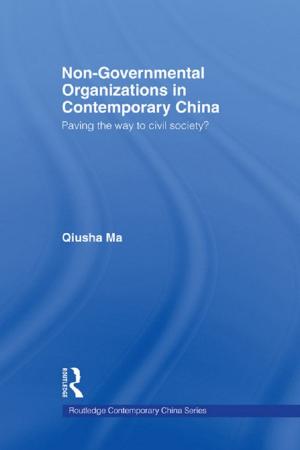Emotional Bureaucracy
Nonfiction, Social & Cultural Studies, Political Science, Politics, Practical Politics, Social Science, Sociology| Author: | ISBN: | 9781351297509 | |
| Publisher: | Taylor and Francis | Publication: | July 28, 2017 |
| Imprint: | Routledge | Language: | English |
| Author: | |
| ISBN: | 9781351297509 |
| Publisher: | Taylor and Francis |
| Publication: | July 28, 2017 |
| Imprint: | Routledge |
| Language: | English |
This study casts doubt on the classic model of bureaucracy and its relevance to developing areas. In particular, Hodder challenges the Weberian distinction between the role of emotion and a modern bureaucracy's impersonal and rational qualities. He suggests that bureaucracies function differently, and offers a different perspective. The focus is the Philippines, but Hodder's conclusions are applicable to other developing areas.
Two main themes are discussed. The first explores the classic Weberian model of bureaucracy. The second concerns ways of thinking about the social features of bureaucracy. The focus is dimensions of bureaucracy that are less dependent upon structure. What emerges is an innovative description of the social world of bureaucracy and its attributes.
Hodder observes that discussions with civil servants and politicians in developing countries suggest that deepening emotion, a strengthening sense of the importance of social relationships, and informality are vital to the emergence of professional and stable organizations. Hodder believes it is possible to account for these social features of bureaucracy by understanding participants' representations and practices.
While these ideas are discussed in the context of the Philippines, they have wider relevance to other states, especially those whose bureaucracies are characterized as weak and personalistic. The author suggests that these characterizations, and possible remedies, may need to be reconsidered. He argues that through informality and emotion, effective and stable organizations can be built: excessive formalism may exacerbate the problems that governments of developing countries are trying to solve. The means to strengthen bureaucracies in developing countries are already available and, rather than be ignored or suppressed, need be identified and encouraged.
This study casts doubt on the classic model of bureaucracy and its relevance to developing areas. In particular, Hodder challenges the Weberian distinction between the role of emotion and a modern bureaucracy's impersonal and rational qualities. He suggests that bureaucracies function differently, and offers a different perspective. The focus is the Philippines, but Hodder's conclusions are applicable to other developing areas.
Two main themes are discussed. The first explores the classic Weberian model of bureaucracy. The second concerns ways of thinking about the social features of bureaucracy. The focus is dimensions of bureaucracy that are less dependent upon structure. What emerges is an innovative description of the social world of bureaucracy and its attributes.
Hodder observes that discussions with civil servants and politicians in developing countries suggest that deepening emotion, a strengthening sense of the importance of social relationships, and informality are vital to the emergence of professional and stable organizations. Hodder believes it is possible to account for these social features of bureaucracy by understanding participants' representations and practices.
While these ideas are discussed in the context of the Philippines, they have wider relevance to other states, especially those whose bureaucracies are characterized as weak and personalistic. The author suggests that these characterizations, and possible remedies, may need to be reconsidered. He argues that through informality and emotion, effective and stable organizations can be built: excessive formalism may exacerbate the problems that governments of developing countries are trying to solve. The means to strengthen bureaucracies in developing countries are already available and, rather than be ignored or suppressed, need be identified and encouraged.















